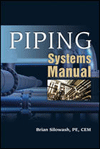Domestic Steel Producers Question Chinese Commitments
“We have seen posturing like this by China before,” said Andrew Sharkey III, president and CEO of AISI. “China makes promises, and then ignores them. China promised to limit new capacity. It has not. China promised to take its most inefficient and polluting steel mills out of production. It has not. China promised to allow its currency, the RMB, to revalue to a market level. It has not. It’s not clear to me why we should believe China’s promises now. We intend to watch what they do, not what they say.”
Thomas Danjczek, president of SMA, stated: “If China exports 10% of its production, its exports will equal half of U.S. annual production. China is not a low-cost steel producer. What gives the Chinese government, with its state-owned steel industry, this sense of entitlement to the North American market, and the right to determine the amount of steel to be exported? China intends to continue expanding its steel production, which means that exports will continue to expand as well. It takes real nerve to claim that this is restraint, when China is really declaring its intention to increase exports of steel that it should never have produced in the first place.”
AISI and SMA have previously expressed concerns over the breakneck expansion of the Chinese steel industry, which has grown by nearly 400% in the last 10 years, and its impact on world markets for both steel and manufactured goods using steel. In 2006, the two associations sponsored a comprehensive study of significant subsidies to the Chinese steel industry. The study concluded that the Chinese government continues to direct the expansion of the steel industry and to provide the industry with massive subsidies. “By focusing on limiting exports, China is trying to avoid the real issue, which is subsidies,” said Sharkey. “China is still subsidizing its steel industry, in violation of its WTO commitments.”
Looking for a reprint of this article?
From high-res PDFs to custom plaques, order your copy today!



